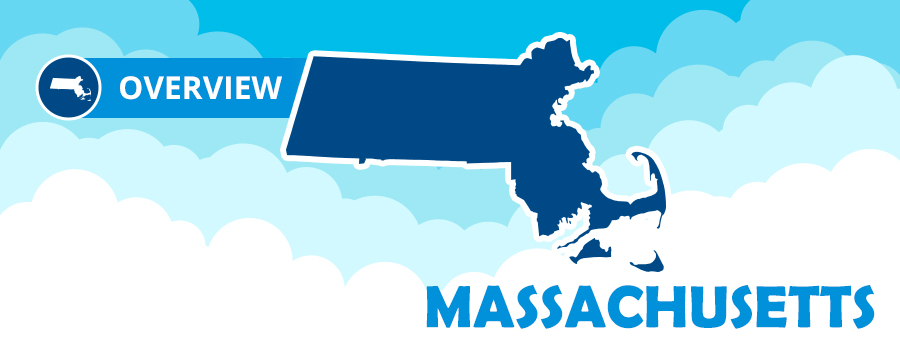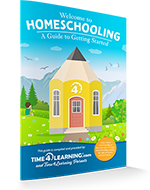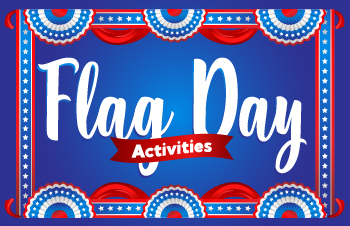Homeschooling in Massachusetts
Are you ready to begin homeschooling in Massachusetts? Then you’re in the right place! You probably have many questions about how to get started, where to look for support, and which curriculum to use. Getting answers to these questions should help you feel much more confident about this new path you’re embarking on.
Let’s get this homeschooling adventure started!
- How to Homeschool in Massachusetts
- Massachusetts Homeschooling Laws
- Massachusetts Homeschool Associations
- Massachusetts Homeschool Groups and Co-ops
- Homeschool Field Trips in Massachusetts
- Massachusetts Standardized Testing and Test Prep
- Why Time4Learning is the Leading Homeschool Curriculum in Massachusetts
- How to Build the Best Homeschool Curriculum for PreK-12 in Massachusetts
This information should by no means be interpreted as legal advice. It is your responsibility to interpret and understand the laws that you will be homeschooling under.
How to Homeschool in Massachusetts
The steps to start homeschooling in Massachusetts are simple and straightforward:
- Submit an annual notice of intent and educational plan to the school district
- Teach the subjects specified by Massachusetts homeschool regulations
- Keep records of any evaluations
- Begin to enjoy learning together!
Welcome to Homeschooling Guide
Download this FREE resource where experienced homeschoolers share their stories for how to begin homeschooling, understanding your child academically, planning your days, and much more.
Massachusetts Homeschooling Laws
The legal requirements in Massachusetts vary depending on which school district you are zoned for. Generally, the homeschooling laws include submitting an annual notice of intent, teaching the required subjects with your choice of curriculum, and evaluation of your child. Learn more on our Massachusetts Homeschool Laws page.
Massachusetts Homeschool Associations
Massachusetts has multiple homeschool associations for support, information, and advocacy to help guide you.
- Advocates for Home Education in Massachusetts (AHEM)
- Massachusetts Home Learning Association (MHLA)
- Massachusetts Homeschool Organization of Parent Educators (MassHOPE)
Massachusetts Homeschool Groups and Co-ops
In addition to state-level support, homeschooling families also have many local and regional support groups to lean on. Even in rural areas, homeschoolers can use online resources to link up with other families for sharing information, getting advice, and planning activities. Discover if there is a support system near you on our Massachusetts Homeschool Groups and Co-ops page.
Massachusetts Homeschool Field Trips
Homeschooling isn’t all lessons and instruction, of course. Home education offers families the flexibility to learn when, where, and how they determine best. Heading out on a field trip anytime you like can be one of the biggest perks of the homeschool lifestyle. Please make sure to contact each site before you plan your visit, as COVID-19 may have impacted their hours of operations.
Browse a large list of homeschool field trips around the state on our Homeschool Field Trips in Massachusetts post.
Massachusetts State Test Prep
Many families appreciate the opportunity to evaluate how their homeschooler is progressing in comparison with other students at his or her grade level. You may find testing useful to track progress, but there are also other options to take. Time4Learning standards-based curriculum builds the skills that students are tested on during standardized tests. Learn more in our Massachusetts test prep page.
Why Time4Learning is the Leading Homeschool Curriculum in Massachusetts
In Massachusetts, homeschool curriculum choice is completely up to parents and students. It is important to understand what programs will best fit your individual student’s needs and your overall homeschool goals and budget. A few of the reasons that Time4Learning is an ever-popular curriculum choice for Massachusetts families include:
- Children love using the computer to learn. Time4Learning is a convenient, online homeschool curriculum that combines education with interactive fun.
- Self-paced, modularized lesson plans allow you to move forward and back through the materials whenever you want. You can skip lessons that teach concepts your child has already mastered and repeat those he or she has not. The choice is yours!
- Time4Learning’s parent tools make it easy to print out a student’s worksheets, compositions, and assessments as examples of progress made.
How to Build the Best Homeschool Curriculum for PreK-12
Homeschool curriculum choices have expanded over the last decade. Parents have much more to choose from than typical textbooks, workbooks, and other traditional schooling methods. Online courses, interactive videos, personal computers, laptops, and tablet devices provide exciting and engaging materials for children to experience.
But all of these new methods often confuse parents, especially those who are new homeschoolers. Eventually, parents come to realize that mixing different tools and activities usually keeps their children stimulated and eager to learn. For more information, review How to Build the Best Homeschool Curriculum for PreK-12.
Massachusetts Unit Study Supplement
Help your homeschooler learn interesting history and geography facts about Massachusetts in the Time4Learning unit study supplement.
Online Curriculum for Homeschool, Afterschool and Summer Use
In addition to being an award-winning choice for homeschool families, Time4Learning also offers an online after school program to help build your child’s skills. View our lesson demos to discover why thousands of Massachusetts families are already using it!
Give your student the chance to get back on track or explore exciting electives and get ahead for the next school year with Time4Learning’s online summer school. Our educational materials will engage and challenge your child to succeed.








